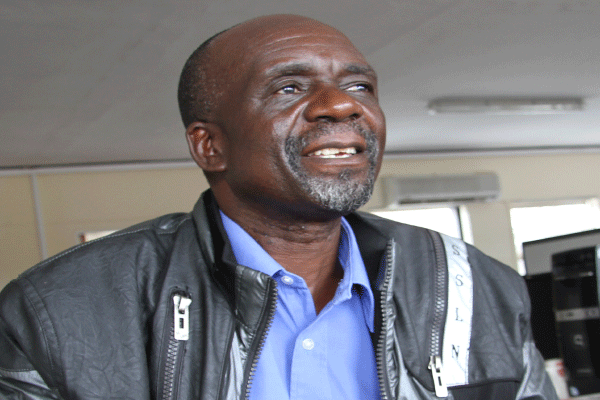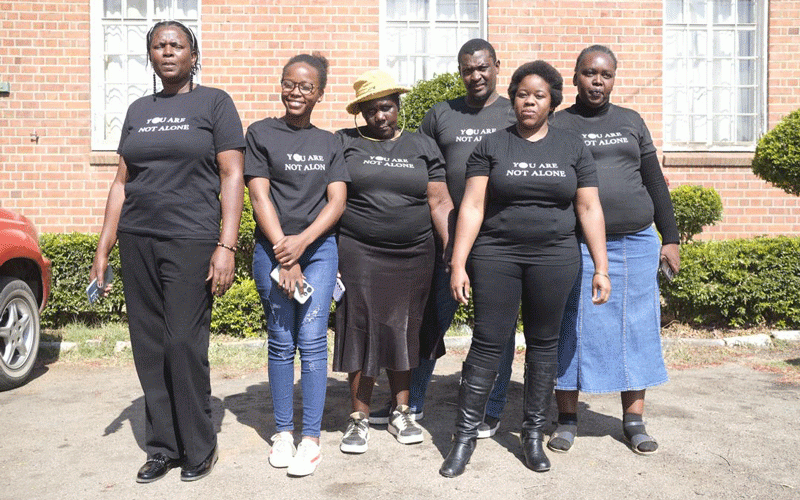
According to section 61 of the Constitution, every person has the right to freedom of expression. My interpretation of the clause is that musicians have the freedom of artistic expression and creativity. They can afford fair opportunity for the presentation of divergent views and dissenting opinions.
in the groove with Fred Zindi

Politicians in this country have put a lot of fear in many musicians. One music student came to me to ask for my opinion on a song he had written which goes like this:
Dem a call us rebels
Dem a call us revolutionaries
Just because we ask the people
To stand up for their rights.
The next verse is a criticism of existing Zanu PF politicians whom he mentions by names and it also describes their inadequacies.
- Chamisa under fire over US$120K donation
- Mavhunga puts DeMbare into Chibuku quarterfinals
- Pension funds bet on Cabora Bassa oilfields
- Councils defy govt fire tender directive
Keep Reading
His big question to me was, if he went ahead and recorded this tune, would it receive airplay? He also wanted to know whether the Zanu PF government would take kindly to such a song.
I advised him to read the Constitution and to find a good lawyer who would defend him if things go wrong.
He chickened out. He said he wanted to live in peace and besides, he did not have enough money to defend himself. He gave me examples of musicians who had written protest songs in the past and were refused airplay. He mentioned Hosiah Chipanga, Leonard Zhakata and Andy Brown.
Look at Andy Brown. Before he died, he wrote the song Nation of Thieves. No one knows that song today because it was banned on state media. When he was later interviewed by Leo Hatugari, a journalist from one daily paper, Andy Brown said:
“I wrote that song to let the public know that Zimbabwe is now a nation of thieves. They have been stealing all the money, so as a result, the whole infrastructure is beginning to fall apart.”
Indeed musicians who write protest songs against the government risk lack of airplay. I have come across artists like Paul Madzore who sang Mhenya Mauro selling their CDs secretly because they are afraid. Secretary-general of the Zimbabwe Progressive Teachers’ Union Raymond Majongwe gave me complementary copies from two of his albums which I think deserve airplay because they are great, but have never been played on radio because the songs on the albums are considered to be protest music
Also look at VioMak — a female musician based in the United Kingdom. Nobody knows her in Zimbabwe due to lack of airplay.
Her message is very clear and direct, which is why her music is heavily censored and has never been played on state radio in Zimbabwe. Viomak says that right now her music is “seeing the darkness of night but there will come a time when it will see the light of day”.
Not willing to be silenced, Viomak and her manager have teamed up with two Zimbabwean women activists to set up a new internet radio station, Voto (Voices of the Oppressed). They are also setting up an award-winning programme, Zimbabwe Protest Arts Awards that will recognise protest artists for their work.
Thomas Mapfumo is the country’s best known politically engaged musician. He is now in exile for fear that politicians might harm him because of his protest music. Songs such as Mamvemve did not go down well with the authorities.
But even before him, music played an important role in the political life of Zimbabwe.
The Rhodesian authorites had called the rebel movements magandanga, meaning “monsters”. But at the time the people of Zimbabwe embraced the word to mean freedom fighters.
Jamaican reggae star, Bob Marley, was actively involved in the struggle for independence and performed at the country’s independence celebrations in April 1980.
His 1979 track Zimbabwe was immensely popular as a rallying cry. When he sang, “Every man’s got a right to decide his own destiny”, he was indeed calling out for what is embedded in Zimbabwe’s present Constitution “Every person has a right to freedom of expression!”
His style of protest song caught on with the African majority.
At a critical and emotional moment like this one, some might suggest that focusing on the interests of the music community, especially their right to sing protest music, is a small and narrow area of concern.
But music is about so much more than celebrity, commerce, and entertainment. Music is no joke. It is a form of communication older than language. In a divided country such as Zimbabwe, music is a uniquely powerful force for alternately confronting injustice and bringing people together, expanding our capacity for empathy, for leading us to better ways of living together. It is a vehicle for critical perspectives to be advanced, galvanising movements, building communities, introducing new voices and ideas and speaking truth to power.
So music and art are worth fighting for, perhaps more now than ever. And if music is worth fighting for, it follows that the welfare of musicians and the infrastructure to support them must also be worth fighting for. Achieving economic justice and security for artists and preserving their autonomy and freedom of expression must continue to be a priority. We ask that all elected officials join us in pursuit of that goal and we will hold them accountable when they do not.
And we remain committed to that work, today and every day.
Feedback: [email protected]











